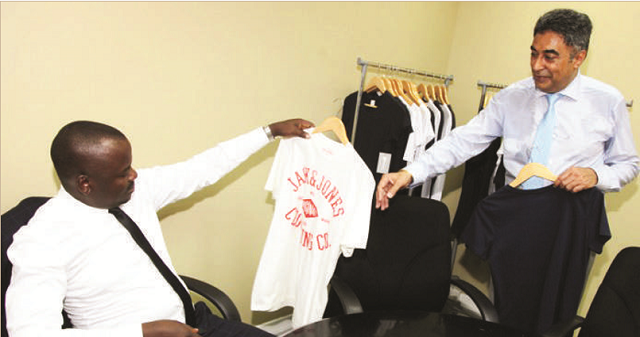
Government gets rid of loss-making company, but can new investor avoid its jinx?
The government of Uganda has leased Phenix Logistics Uganda Ltd, a garment manufacturer based in Kampala, to a Kenyan-based garment manufacturer – Fine Spinners.
The deal which is at un-disclosed amount of money and a 15-year period is interesting because Fine Spinners is a new player on the Uganda market, having set up in 2014 while, for nearly two decades, Phenix Logistics has been recording losses, with the government injecting in billions of shillings to keep it afloat.
The development comes at the time the government plans to revive its cotton industry, one of the country’s foreign exchange earners until the 1970s. There has also been a surge in demand for cotton as raw materials from domestic mills and the potential to supply manufacturers producing clothes and textiles abroad.
At the moment, the country produces merely 110,707 bales per annum, grown in more than 60 districts in Busoga, Bukedi, Bugisu, Teso, Lango, Acholi, West Nile, and western regions.
How the acquisition of Phenix Logistics impacts the operations and success of Fine Spinners, however, remains to be seen.
During the hand-over of Phenix Logistics to the new investor, more than 150 workers at the company were demanding their salaries worth Shs2 billion plus their terminal benefits.
But Jaswinder Bedi, the chief executive officer of Fine Spinners told The Independent in an interview that the Phenix Logistics acquisition will help Fine Spinners increase its production capacity from the current 450,000 to 570,000 T-shirts per month to meet the demand of various customer segment abroad.
“We decided to acquire Phenix Logistics for strategic reasons,” he said, “Increase our production capacity but most importantly produce a new variety of materials known as mélange.”
Phenix Logistics was billed as a private company, even if the government owned a 94% stake. It was a joint venture business between the government, the Japanese investor Yuichi Kasiwada and others.
Phenix troubles
Before it became Phenix Logistics, so-called investors acquired the company then known as United Garment Industries Limited (UGIL) in 2000 from the government at a reported cost of $500,000.
But the firm never made any business or profit and instead depended on government for bailouts in exchange for shares. While the firm secured international market for its organic products made in the country, with the first consignment of 50,000 units flagged off by President Yoweri Museveni in 2007, there was no any further shipment.
Instead, a report released by the Auditor General (AG) in 2012 showed that government continued to inject money into Phenix Logistics, including guaranteeing a loan from JBIC amounting to Shs4.2 billion even as the company consistently continued to make losses.
The AG wondered why the government kept increasing its shareholdings in a firm that had never paid it any dividend.
It is during this period that Phenix borrowed Shs4.2bn from the Uganda Development Bank and failed to service the loan. This prompted its management to once again, approach the government to help repay the loan that had swollen to a tune of Shs5bn inclusive of interest rate.
This necessitated the government to convert the debt into shares, obtaining 49% shareholding of the firm. And before dust could settle on the new shareholding agreement, the firm’s management turned up again with another request for Shs1.3 billion to finance the operation of the company.
And as the debt continued to accumulate, the government also increased its shareholdings to 79% and thereafter 94% even as the firm continued to record losses every year.
Reports indicate that the firm in the 2007/8 financial year registered a Shs806 million loss; which later went up to Shs3.9 billion in 2008/9. In 2009/10, the firm registered a Shs3.4bn loss and another Shs671.2 billion loss in the next year.
 The Independent Uganda: You get the Truth we Pay the Price
The Independent Uganda: You get the Truth we Pay the Price






How can I get to your firm.
I need school uniforms.
I want your telephone number